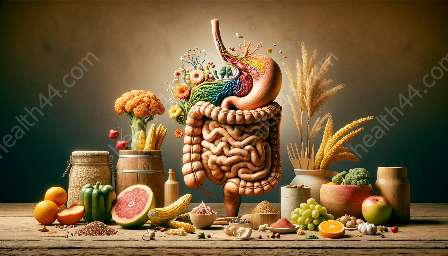Healthy eating is the foundation of a balanced and fulfilling life. It encompasses a holistic approach to nutrition, incorporating the right balance of macronutrients, micronutrients, vitamins, and minerals to support overall well-being. In this comprehensive guide, we will explore the critical aspects of healthy eating, including the connection between nutrition and health, the impact of food choices on our bodies, and practical tips for developing sustainable eating habits.
The Connection Between Healthy Eating, Nutrition, and Health
Healthy eating is closely intertwined with nutritional intake and its effects on our physical, mental, and emotional health. Proper nutrition provides the body with the essential energy and nutrients required for optimal functioning, growth, and repair. It also plays a significant role in reducing the risk of chronic diseases, such as heart disease, diabetes, and obesity.
A well-rounded diet rich in fruits, vegetables, whole grains, lean proteins, and healthy fats not only nourishes the body but also supports overall health and well-being. Additionally, incorporating a variety of nutrient-dense foods into our diet promotes longevity, reduces inflammation, and enhances immune function.
The Impact of Healthy Eating on Overall Health
Healthy eating has a profound impact on overall health, influencing various aspects of the body's functionality. Proper nutrition contributes to maintaining healthy body weight, supporting cardiovascular health, and reducing the risk of developing chronic conditions. A well-balanced diet also bolsters mental clarity, cognitive function, and emotional stability.
Furthermore, healthy eating habits can positively influence food-related behaviors and attitudes, fostering a healthier relationship with food and promoting mindful eating practices. As a result, individuals are more likely to experience higher energy levels, improved digestion, and better sleep patterns.
Practical Tips for Healthy Eating and Sustainable Living
Adopting healthy eating habits and integrating them into a sustainable lifestyle is achievable through mindful choices and informed decisions. Consider the following practical tips to support your journey towards a healthier and more balanced diet:
- Diversify Your Plate: Incorporate a colorful array of fruits, vegetables, whole grains, lean proteins, and healthy fats to ensure a wide range of nutrients and antioxidants.
- Portion Control: Practice mindful portion sizes to prevent overeating and support weight management. Utilize smaller plates and bowls to create visually satisfying meals.
- Stay Hydrated: Keep your body well-hydrated by consuming an adequate amount of water throughout the day. Consider infusing your water with fresh fruits or herbs for added flavor.
- Mindful Eating: Pay attention to your body's hunger and fullness cues, and savor each bite to enhance the eating experience and promote better digestion.
- Meal Planning: Prepare balanced meals in advance to encourage healthier food choices and reduce the reliance on processed or fast foods.
- Community Support: Seek support from friends, family, or online communities to share experiences, resources, and healthy recipe ideas.
Conclusion
Healthy eating is an essential component of overall well-being, and its impact on nutrition and health cannot be overstated. By prioritizing a nourishing and balanced diet, individuals can enhance their physical health, mental clarity, and emotional stability. Embracing healthy eating habits and mindful food choices can lead to sustainable living, promoting longevity and vitality.




























